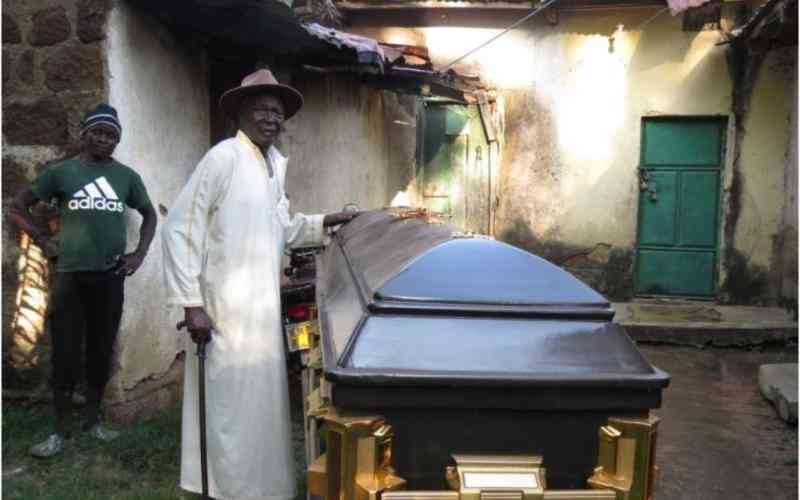×
The Standard e-Paper
Kenya’s Boldest Voice

Alloys Ominangombe cuts the figure of a man at peace with himself and the world.
In 2006, Ominangombe shocked residents of Okatekok village in Teso South, Busia, when he bought himself a coffin, not because he was ailing or on the verge of death, but because he was being cautious and preparing for the inevitable.